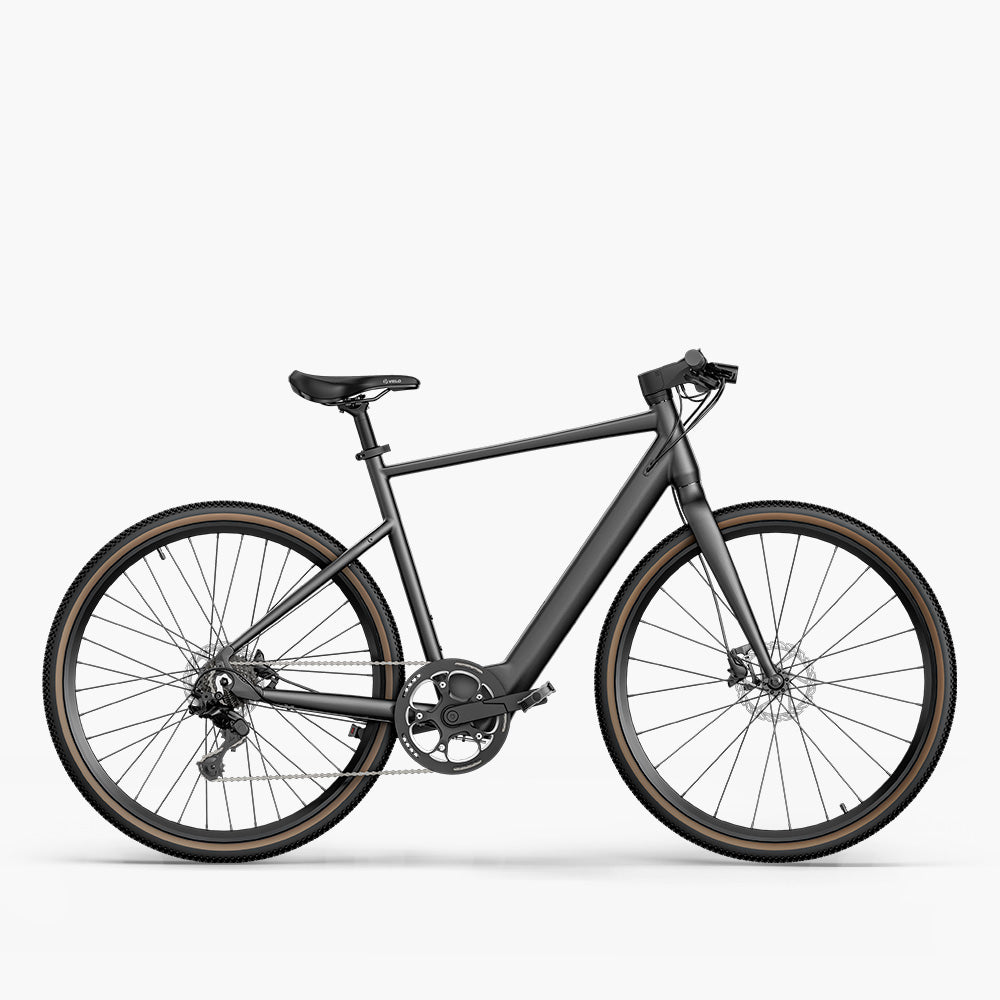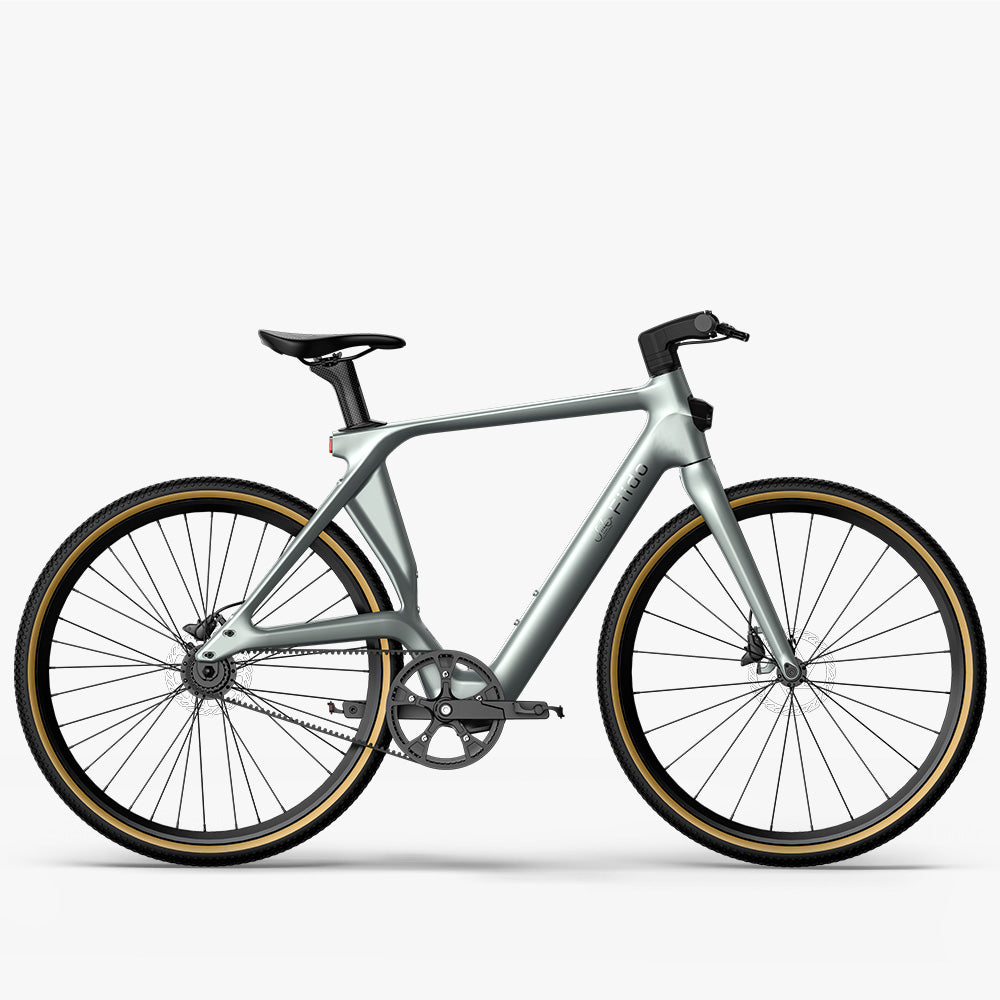In Germany, e-bikes are widely used and offer many advantages: they make commuting easier, are more environmentally friendly, and promote urban mobility. But what happens when the battery runs out? Can we still ride our e-bike? In this article, we take a look at how riding without a battery works and what benefits it brings.

How an E-Bike Works
E-bikes consist of several components, with the battery playing a central role. It supplies energy to the motor, which powers the bike and helps riders cover long distances or tackle steep inclines with ease. Many electric bikes offer different assistance modes that can be adjusted as needed. However, when the battery runs out, that doesn't mean the bike can no longer be used.
Why Can You Ride Electric Bike Without a Battery?
-
Lightweight Construction
Most e-bikes, especially those from Fiido, are made from lightweight aluminum or other modern materials. This ensures that the bike remains relatively light. This design allows even less physically strong riders to pedal without assistance. A lightweight frame makes handling easier and ensures a comfortable ride, even when the battery is no longer working. -
High-Quality Gear Systems
Many e-bikes are equipped with efficient gear shifting systems. This allows riders to adjust gears depending on the terrain. Even when the battery is depleted, riders can still shift gears to adapt to different inclines. This keeps riding smooth and ensures good speed control even without electric assistance. -
Ergonomic Design
Another advantage of e-bikes is their ergonomic design. Many models offer a comfortable riding position that makes pedaling without assistance easier. An upright posture and well-padded saddles enhance comfort, even when the electric support is not available. -
Balanced Weight Distribution
E-bikes are designed to distribute weight evenly. This ensures that the bike remains stable even without a battery, allowing the rider to maintain balance easily. A well-balanced weight distribution is crucial for a safe riding experience, especially when riding without electric assistance.

Advantages of Riding an Electric Bike Without a Battery
-
Flexibility
One major advantage of riding without a battery is flexibility. You are not dependent on charging times and can spontaneously decide where to go. This is especially practical in cities, where you want to get from A to B quickly without worrying about charging. -
Independence
Even if the battery runs out, you can still ride. This is particularly useful in rural areas, where charging stations are scarce. You remain independent and can travel anytime and anywhere. -
Environmental Friendliness
Riding without a battery reduces electricity consumption and helps the environment. It actively contributes to lowering the carbon footprint, which is especially important in today's world. This makes cycling an even more environmentally friendly mode of transportation.
Preparation and Strategies for Riders
-
Physical Fitness
To ride well without assistance, a basic level of fitness is beneficial. Regular exercise and cycling strengthen muscles and endurance, making riding significantly easier. A certain level of fitness makes a difference, especially on longer routes. -
Route Planning
Careful route planning is essential. You should choose routes that are not too steep to make riding without assistance easier. Flat routes are particularly suitable for getting used to riding without electric support. Plus, exploring new routes can be fun. -
Spare Tools
It is advisable to carry basic tools for minor repairs. Breakdowns can happen anytime, and being well-prepared allows you to react quickly and continue your ride. A small set of tools in your backpack can be extremely valuable.
Fiido: E-Bikes That Can Be Ridden Without a Battery
Fiido C21
The Fiido C21 city e-bike is a lightweight and versatile electric bike that delivers excellent performance even without motor assistance. With its aluminum frame, the bike weighs only about 24 kg, making it easy to handle. The 7-speed gear system allows for flexible adjustments to adapt to different riding conditions. Whether in the city or on short trips, the C21 keeps you mobile even without a battery.
Fiido E-Gravel C21 Electric Bike
Urban commuter electric bike with torque sensor, only 38.58 lbs.
Fiido Air
The Fiido Air Carbon Fiber E-bike is extremely lightweight and perfect for urban commuting. This carbon e-bike can be effortlessly ridden even without a battery. The model stands out for its high level of comfort and excellent riding experience, even when the battery is depleted. Its ergonomic design and efficient gear system ensure a pleasant ride, even on longer journeys.
Fiido Air Carbon Fiber E-bike
A revolutionary lightweight bike, winner of the Red Dot Award.
Conclusion
In summary, an e-bike can be ridden without a battery, although it requires more physical effort. Models like the Fiido C21 and Fiido Air Carbon Fiber E-bike provide additional advantages and comfort that make riding without assistance easier. With the right preparation and smart route planning, riding without electric support can be a great experience. Take advantage of the freedom these e-bikes offer and enjoy cycling to the fullest – even when the battery runs out!















